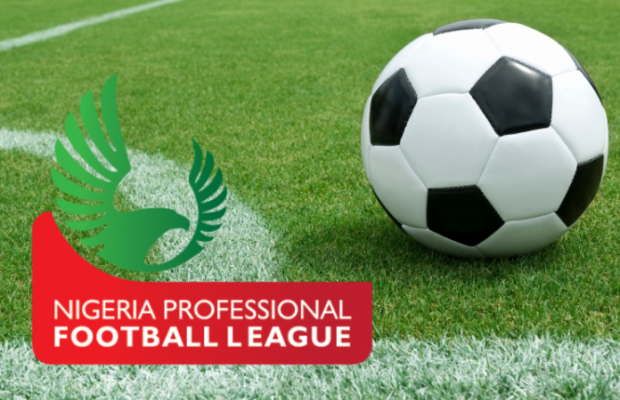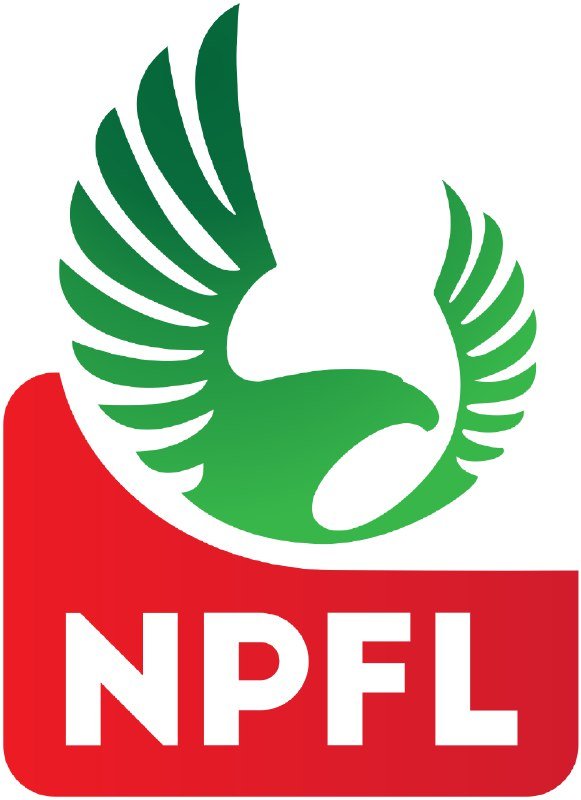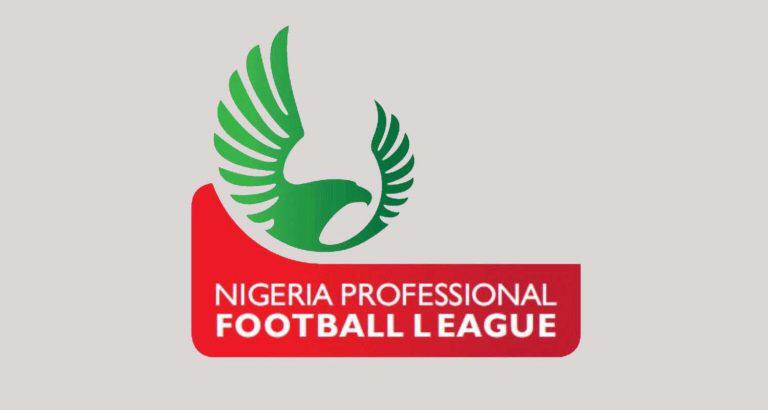The Nigerian Professional Football League officially began in 1990, following the full consideration and implementation of the report of the Nathaniel Idowu-led Committee.

The report includes, among other things, a business-oriented approach to the running of professional football in Nigeria. This was supposed to reflect in the manner clubs are run, players’ remuneration and the league.
Clubs were given a five-year grace to build their own stadiums; clubs were supposed to go public and sell shares in the capital market; the government was supposed to ease its stranglehold on the country’s football mechanism, while club managers and managements were tasked with how to initiate programmes that can generate enough revenue for clubs and break away from being too dependent on government funding.
Since then, the Nigerian Professional Football League has witnessed fluctuating fortunes. After a slow but sure start in the early 90s, the league grew in strength and status and in the mid-1990s and mid-2000s, the country produced local stars that attracted crowds to the stadiums.
Local football matches attracted capacity crowds and the administrators were smiling to the bank after every match as the gate-takings alone accounted for a major part of their income, outside government funding.
Stars like Bright Omokaro, Stephen Keshi, Henry Nwosu, Monday Agbontaen, Finidi George, Etim Esin, Uwem Ekarika, Friday Elaho among others too numerous to mention. The clubs they played for were also very popular among local football folks.
Foreign teams were not as popular as they are today. Only pool stakers and die-hard supporters of clubs like Man Utd, Liverpool and others could be heard discussing the English Football League or the Australian League and the likes.
At weekends, it was either Rangers International versus IICC Shooting Stars or Bendel Insurance against Mighty Jets of Jos. In 1976 and 1977 Shooting Stars and Rangers won the Cup Winners Cup respectively. BCC Lions of Gboko sprang from nowhere in 1990 to snatch the Africa Cup Winners Cup with late Amodu Shaibu as the coach.

NPFL. photo credit: Wikipedia
Given the tough and rigorous nature of the league, Nigerian players could leave the shores of the country straight into the first teams of top European clubs. Finidi George and Nwankwo Kano went straight into Ajax and made huge contributions to the victorious squad that won the 1994 UEFA Champions League. It was a glorious past indeed.
The formation of the League Management Company by The Alhaji Aminu Maigari Board, in 2002 brought some air of relief for the local game which was near collapse.
The LMC then under an Interim Management Committee led by Honourable Nduka Irabor. The late Oyuki Obaseki took over from Irabor and there were some landmark achievements by the board in those early years.
The Nigerian league was on television as Supersport and the LMC had an agreement which meant matches were being aired live. That made the Nigerian league popular. Despite the poor pitches that have remained a sore point in Nigeria’s football development, the local league grew in leaps and bounds.
Part of the funds derived from the television rights were shared out to clubs at the end of each season. The Nigerian League became top in Africa and the clubs were doing very well in the CAF Inter-club competitions.
Enyimba International of Aba won the elusive CAF Champions League back-to-back in 2003/04 seasons. Clubs like Sunshine Stars Football Club of Akure, Heartland of Owerri made impressive outings in Africa.
Thirty years down the line, the Nigeria Professional Football League has remained a laughing stock as even in the West African region, the NPFL appears to be struggling against leagues in Cote d’Ivoire, Ghana, Benin, among others.
For over eight months, the NPFL is still dithering about a resumption date for the 2019/20 season and we are already in December. In the past two or three seasons, the Nigerian Professional Football League has been organised in an abridged format.
In the first of these past seasons, the League Management Company flirted with the idea of a two-group league format of ten teams each group. Group A and B. The first two teams in each group qualified for the season-defining Super Four League.
Winners and runners up of the Super Four League qualified for the CAF Champions League while the second and third runners up went for the CAF Confederation Cup. The last season which was aborted by the COVID-19 pandemic, the LMC used the point per game (PPG) format to decide the winners.
The attendant confusion the decision caused among the clubs was legendary, as Rivers United which was leading in the table were told in clear terms that Plateau United and Enyimba had more advantage over them after the table was analysed.
It took the intervention of very powerful people behind the scene to force the Port Harcourt based club to drop their protest as they were ready to go to court for proper interpretation of the format. The main issue now is when the new season will commence.
Is it likely that Nigerians will see the Nigeria Professional Football League kick off this year? Many dates had been bantered in the past. The last was December 6 which was not practicable due to what Alloy Chukwuemeka, Scribe of Club Owners Association of Nigeria described as “our peculiarities.
The date was moved to December 13, which is tomorrow. Will the league start as planned? An avid follower of the NPFL and journalist, Aikhoje Ojeikere doubts. “There is no sign to show that the league is starting this Sunday,” he said.
We asked Alloy Chukwuemeka to confirm if the season would begin as planned.
His answer: “Yeah. Originally, there was a proposal for us to kick off the league on December 6. But on a second thought, coupled with advice from various stakeholders, it was agreed that there shouldn’t be any distraction for clubs engaged in continental competitions.
This was to let them play their continental matches(first and second legs) before we start. We agreed for a shift in the commencement date to 13th of December to give every club a level playground. That (13th December) to is subject to the ratification of the LMC and Club owners at the AGM which will hold any moment from now.
We sought more answers
Why is it so difficult for the Nigerian League to commence? We have had several shifts in dates, for instance, it was first mooted to commence on November 25, then it was moved to December 6 and now to the 13, which I still fear may not be feasible?
Other leagues are playing in Africa. Why is the Nigerian case different? “Nigeria is not like any other African country. We have to deal with our own peculiar situation. If you look at it, all these discrepancies are as a result of the COVID-19 crisis, which is a global crisis.
You will agree with me that the way coronavirus is being handled in Germany is not the same way it is handled in Nigeria as per facilities and the like. So what we have to do has to be defined by the Nigerian environmental factors.
“You recall that only recently, the federal government lifted the ban on contact sports. We had to wait until that order was lifted. That has been the major cause of delay. After the lifting, teams should have a minimum of six weeks to train and regain form.
As we would be doing that, other arrangements have to be put in place before kick-off. Because we are in the system, people from outside may express their opinions, but their views won’t be dismissed as we perceive that as feedback.
That does not in any way mean that those saddled with the responsibility of seeing things through will not follow due process. In following the due process we waited for the federal government to give the go-ahead and for the NFF to lift the ban on football activities.
Then players will prepare, which under normal circumstances should take six weeks minimum. Based on that, if you calculate from when the federal government gave its consent for the resumption of contact sports and now it would correspond with the original date of 6 December.
“Now we were faced with the issue of our clubs having continental assignments and we wanted them to have full concentration and face their assignments, considering the poor results from the first leg. We wanted every team to start on equal terms. People should try to understand our own peculiarities.”
Undaunted, we asked further. Indeed, our own peculiarities are different because the COVID-19 we are harping on so much is not as severe in Nigeria as it is in other countries like in Europe and even some other African countries?
“You and I are stakeholders in this, but we are not health experts. The PTF and NCDC are there and we will continue to wait for them to give us direction. What is happening in Zambia, South Africa or Europe is different from what is happening in Nigeria.
We will continue to wait for the relevant authorities to give us direction. And that they have done in their own time, so we have to work within that time frame.”
In your own opinion, as Alloy Chukwuemeka, don’t you think we are over amplifying the issue of COVID-19 in Nigeria?
“I cannot speak on any issue I am not well-grounded in, especially health. Only the experts can talk on that. As an administrator of football, what we are trying to do is to work within their guidelines, which include ensuring that all the clubs adopt and, religiously, follow the Covid-19 protocols.
Secondly, on the issue of the date, the AGM will decide, with the thinking that all the clubs will be given equal opportunities and none should be disadvantaged. So the AGM gave those clubs in the continent time to prepare well for their second legs. That has now been done.”
Don’t you think the absence of competitive football in Nigeria is affecting the clubs on continental assignments?
“Yes. Only recently in Lagos, I tried to plead with the clubs to pardon us. As you rightly pointed out, the league was supposed to have started long before now, to put these clubs in proper shape and in a competitive mood to face their continental assignments.
As I pointed out you have seen our challenges and I plead again for the understanding of all stakeholders. We will continue to initiate a lot of reforms to be on the same page with organisers leagues as obtained universally.
“Everything has been put in place to have a smooth take-off. Our partners and sponsors are all on the ground. The referees are set as they have all done the Cooper test. We are good to go. The AGM will have the final say.”
Is the AGM holding before this weekend?
“Anytime soon.” Funny, no fixtures yet for a league starting this weekend? Teams still do not know who their opponents would be. The chairman of Kano Pillars Football Club, Alhaji Suraju Shaibu Yahaya told this reporter Tuesday that he was not sure of their opponents, should the league kick off this weekend as is being bandied.
“I was told that the fixtures have been changed from what they gave us. Originally, we were supposed to play Nasarawa United in the opening match. But as it is now, I am at a loss over who we are going to face should the season begin this weekend.” From the foregoing, it is clear that there is a total collapse of structure and clear lack of direction in the management of the Nigeria Professional Football League.
The leadership of the NPFL and LMC lack the drive and will to reposition the Nigeria Football League. As usual, even if it starts, the Nigeria league which is 30 years old will not be on television screens. Indeed it won’t even be on the radio either.
Several attempts to get across to the Chairman of the league, Shehu Dikko proved abortive as he appears to be either too busy or just didn’t care to answer his calls. He ignored text messages sent to his number. Whether he answers phone calls or not, one thing stands clear: under his watch, the Nigeria Professional Football League has been reduced to an inter-house competition.
The results of Nigerian clubs in CAF Inter-club competitions and the 100 per cent foreign-based Super Eagles are pointers to the failure of the Nigeria Professional Football League.
Post Disclaimer
The opinions, beliefs and viewpoints expressed by the author and forum participants on this website do not necessarily reflect the opinions, beliefs and viewpoints of Anaedo Online or official policies of the Anaedo Online.

